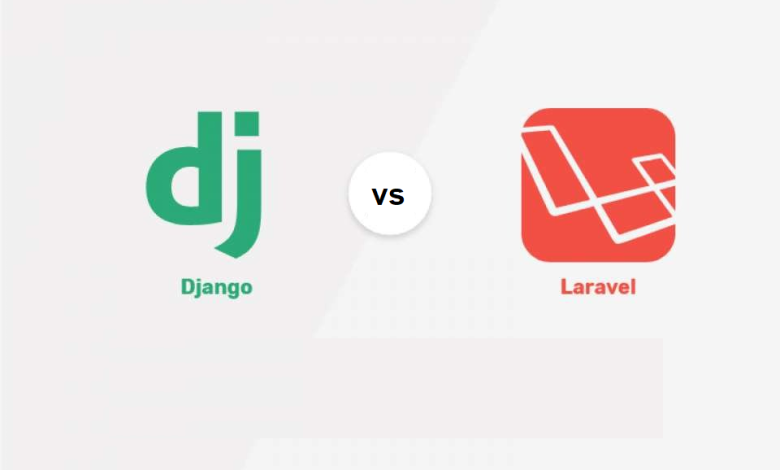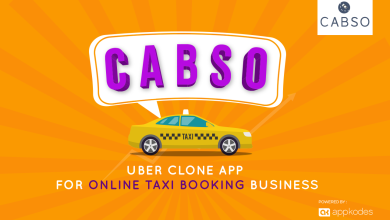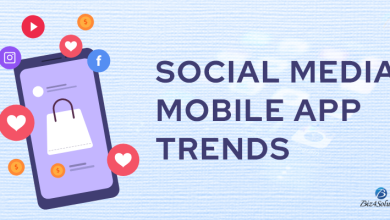Laravel vs Django: A Detailed Comparison Between Web Frameworks

Laravel and Django are two of the most popular open-source web frameworks available today, with each having its own set of unique characteristics and elements that separate it from other frameworks in the market today. And while both platforms have many benefits, there are some areas where one outshines the other.
In this article, we’ll examine how Laravel stacks up against Django in three key areas: scalability, user experience, and site performance. We’ll also look at some other factors you should consider when choosing which framework to use for your next project.
What is Laravel?
Laravel is a free, open-source PHP web framework, created by Taylor Otwell and intended for the development of web applications following the model–view–controller (MVC) architectural pattern.
Some of its features include a modular packaging system with a dedicated dependency manager, different ways for accessing relational databases, utilities that aid in application deployment and maintenance, and its orientation toward syntactic sugar.
What is Django?
Django is a high-level Python web framework that enables rapid development of secure and maintainable websites. Built by experienced developers, it takes care of much of the hassle of Web development, so you can focus on writing your app without needing to reinvent the wheel. It’s free and open source.
Laravel vs Django: Which is best ?
Design Architecture
When choosing a web development framework, one of the key considerations is the design architecture. Both Laravel and Django have different philosophies when it comes to designing their applications.
Laravel takes an expressive and elegant approach to design with an emphasis on simplifying common tasks. Django, on the other hand, takes a more pragmatic approach and provides a comprehensive set of features out-of-the-box.
Security features
Laravel and Django are two of the most popular web development frameworks. Both offer great security features, but Laravel takes the lead in this category. Django has optional security middleware that can be used to help secure your site, but it’s not as comprehensive as Laravel’s security features.
API Integration
Django comes with a lot of built-in features, such as authentication, messaging, and an ORM, which can save you a lot of time and effort when building a web application. However, Django’s flexibility can also be its downfall. If you want to add a new feature to your Django app, you may have to rewrite a lot of existing code.
Laravel is newer than Django, but it has already gained a lot of popularity due to its ease of use and clean syntax.
Community Support
One of the key differences between Laravel and Django is the level of community support each framework enjoys. Laravel has been around for longer and as such, has a more established community. However, Django’s community is growing rapidly.
Templates System
Django’s template system is highly intuitive and easy-to-use. Laravel, on the other hand, uses a templating system called Blade. Blade templating is very powerful and provides more flexibility than Django’s templates. However, it can be difficult to learn for beginners.
Error Handling
When it comes to error handling, Laravel and Django both have their pros and cons. Laravel has a built-in exception handler which makes it easy to handle errors.
However, Django’s exception system is more customizable and can be better suited for complex applications. In terms of performance, Laravel is faster than Django due to its lazy loading feature. However, Django’s templating system is more efficient and can lead to better performance in some cases.
Supported Programming Languages
Laravel and Django are two of the most popular web development frameworks.
They both support a variety of programming languages, including PHP, Python, and Ruby. Laravel is a full-stack framework, meaning it includes everything you need to build a website, from the front-end to the back-end. Django, on the other hand, is a more lightweight framework that focuses on the back-end.
Scalability
When it comes to scalability, both Laravel and Django can handle pretty large projects. But there are some key differences.
For example, Laravel is built on top of the Symfony framework, which makes it more scalable than Django. Also, Laravel has an auto-loading feature that allows you to scale your app without having to reload the entire page.
Library Support
One of the main differences between Laravel and Django is the level of support they offer for different libraries. Laravel has very good support for many popular libraries, such as Socialite, Cashier, and Passport. Django, on the other hand, has excellent support for only a few specific libraries. This can be a big deciding factor when choosing which framework to use.
Conclusion
In conclusion, both Laravel and Django are great web development frameworks with a lot to offer. They each have their own strengths and weaknesses, so it really comes down to personal preference. If you’re looking for a framework that is easier to learn and use, then Laravel development is the way to go. However, if you need more flexibility and control, then Django is the better option.
Read Also:




